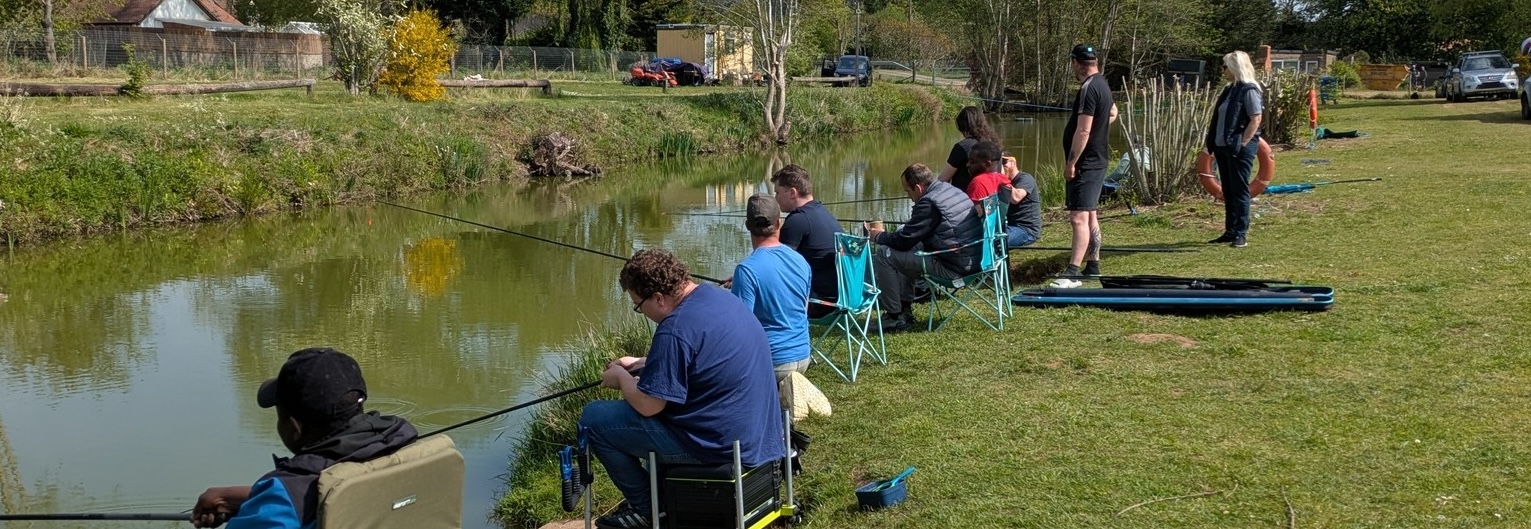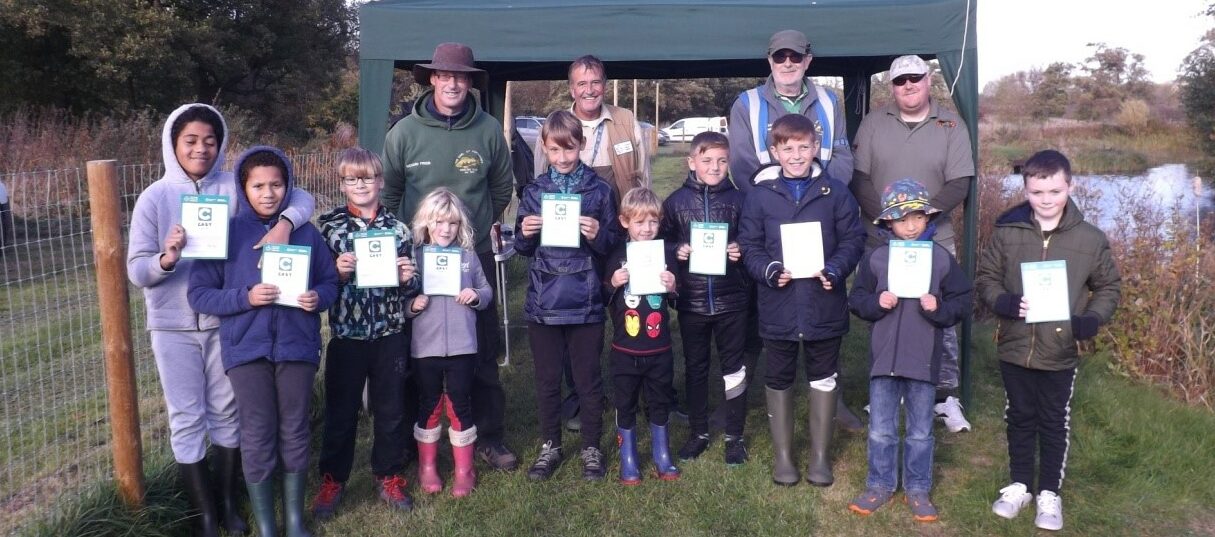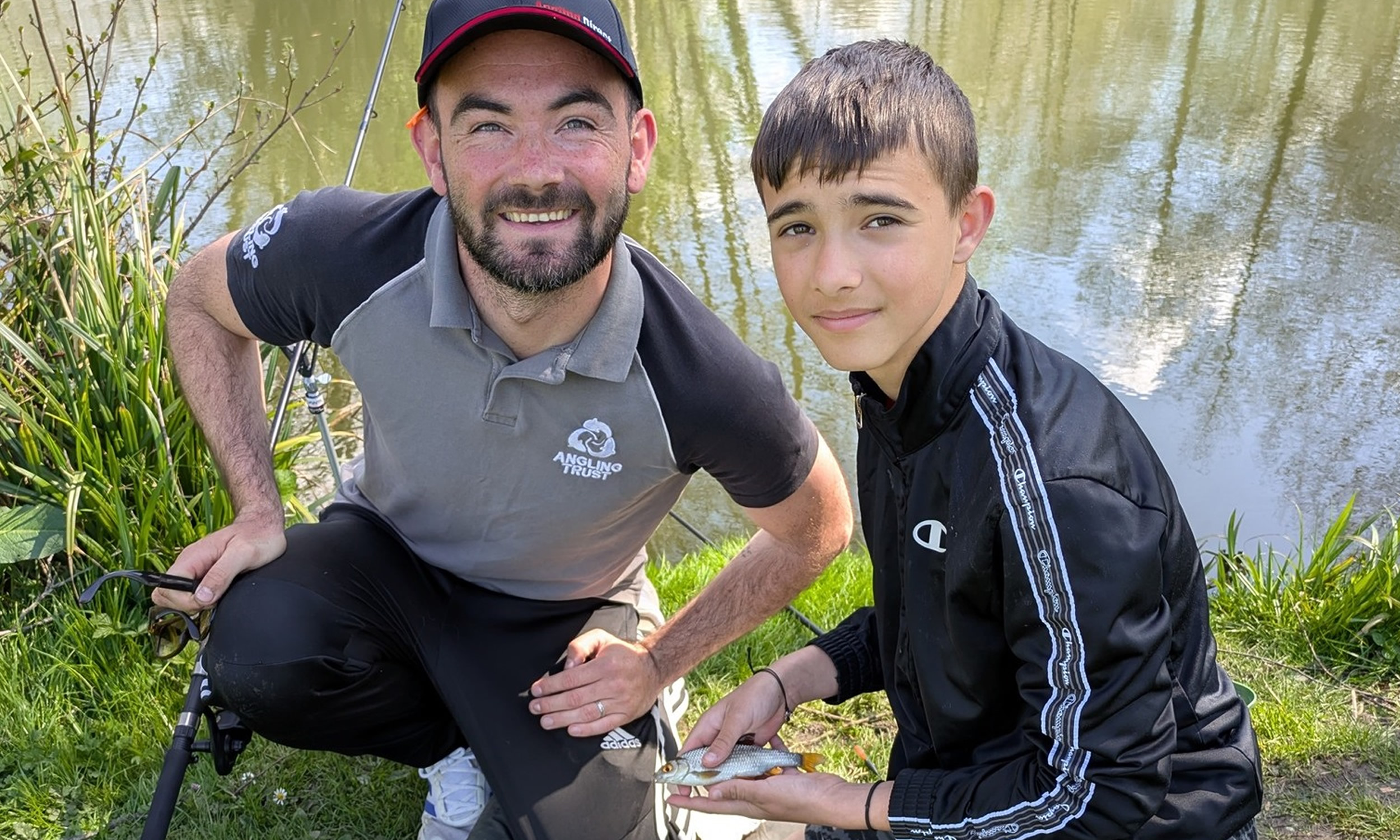
Anglers Against Pollution
Angling Trust banging the drum against pollution at party conferences
The Angling Trust has been making sure that anglers’ voices were heard loud and clear by politicians at all three of the recent party conferences.
Anglers will understand the sentiments expressed by Labour leader Sir Keir Starmer in his speech in Liverpool when he talked about politics needing to “tread lightly on people’s lives” and went on to say “government needs to be able to give people time to do what they love – football, fishing, or just a quiet time with your family”.
But as anglers we also know that to enjoy the fishing we love depends on clean and healthy rivers and seas, rich in wildlife and free of pollution.
Pollution was inevitably high on the agenda as both Stuart Singleton-White (Head of Campaigns) and Martin Salter (Head of Policy) travelled to the gatherings of the Conservative, Labour and Liberal Democrat faithful. These are likely to be the last party conferences before the general election.
At Labour’s conference in Liverpool, Martin Salter addressed the new Shadow DEFRA team with a seven-point plan for reforming the water industry and tackling the sources of pollution.
Martin said:
“The scale of the challenge facing any incoming Labour government is huge. You will be playing catch up on a massive scale as we pay the price for decades of inaction and complacency. But there are things that can be done, here’s seven of them for starters.
- Radically overhaul the regulation of the water industry and get rid of this farcical distinction between economic and environmental regulators by abolishing OFWAT and reforming the governance of the Environment Agency so it becomes bulldog not lapdog.
- Restore the funding for EA’s pollution control staff and stop relying on flawed operator self-monitoring by the water companies. These people should not be marking their own homework.
- Withhold all subsidies from agricultural businesses that fail to comply with environmental regulation or damage local river catchments.
- Reform the Water Industry Act to make water companies properly accountable and give new powers to ministers to take over failing water companies, sack the board and restructure the business.
- Require all pollution fines to be returned to the environment either to fund tougher regulation or local environmental improvements, instead of disappearing into treasury coffers.
- Require all planning consents for new developments to make a contribution to upgrading wastewater infrastructure and fresh water supply.
- Accept that water is a precious, public resource upon which all life depends and value it accordingly.”
He added:
“We need more action and ambition from the government on the storm overflow plans – we cannot wait until 2050 for this scandal to be fixed. Their Plan for Water is welcome in parts but timid. So too is their Environment Improvement Plan. Laudable visions are easy but ultimately worthless without a clear path on how they are going to be delivered.”
Meanwhile, speaking to the Lib Dems in Bournemouth and the Conservatives in Manchester at the Rural Receptions organised jointly with the British Association for Shooting and Conservation (BASC), Stuart Singleton-White outlined the parlous state of our rivers and watercourses saying:
“Since 1948 the Angling Trust, Fish Legal and our predecessor organisations have not only been highlighting and campaigning against pollution but we have used the civil law to take the polluters to court and win millions in damages on behalf of our member clubs and fisheries. As anglers we get it – but this is not work we should have to be doing.
“Pollution has been a crime for many years but we are suffering the consequences of a fundamentally flawed privatisation of the water industry and a regulatory system that is simply not fit for purpose. As a result our rivers are in decline and we face a biodiversity crisis – the State of Nature report shows one in seven UK species in severe decline or facing local extinction. And freshwater species and migratory fish rank among the fastest declines.
“Harmful chemicals have now been found in 1600 rivers, lakes and groundwater sites. All water bodies fail to reach ‘good’ status’ for chemical standards, only 14% reach good for ecological standards under the Water Framework Directive. And the worst areas of failure in ecological standards are in fish.”
He added:
“The water quality figures are nothing short of shameful with last year recording 300,000 sewage spills in England, 74,000 in Wales and 14,000 in Scotland. And these are primarily storm overflows – just wait until the rising mains start crumbling as is already happening in the Thames Water region. That’s when you get total wipe out, when a problem becomes an environmental catastrophe.”
You might also like

Angling Trust Presses Water Commission to Go Faster and…

VIDEO: Alice and her 3 boys have a day…

Recovery Rods help boost mental health and wellbeing by…

Teddy is hooked! – back for more fishing and…

Thank you to all our volunteers – you do…

Get Fishing Fund – Funded Project: HACRO were visited…

New Horizons had an amazing day taking part in…

Get Fishing Fund – Funded Project Blog: Steve Clamp…

Somersham Angling Club hosted some fabulous Get Fishing events…

BLOG: Jack’s Back! What’s been happening in my East…

We want a water industry fit for purpose

VIDEO: What are your favourite fishing moments?! – Get…

Angling Trust Presses Water Commission to Go Faster and…

VIDEO: Alice and her 3 boys have a day…

Recovery Rods help boost mental health and wellbeing by…

Teddy is hooked! – back for more fishing and…

Thank you to all our volunteers – you do…

Get Fishing Fund – Funded Project: HACRO were visited…

New Horizons had an amazing day taking part in…

Get Fishing Fund – Funded Project Blog: Steve Clamp…

Somersham Angling Club hosted some fabulous Get Fishing events…

BLOG: Jack’s Back! What’s been happening in my East…

We want a water industry fit for purpose

VIDEO: What are your favourite fishing moments?! – Get…

Angling Trust Presses Water Commission to Go Faster and…

VIDEO: Alice and her 3 boys have a day…

Recovery Rods help boost mental health and wellbeing by…

Teddy is hooked! – back for more fishing and…

Thank you to all our volunteers – you do…

Get Fishing Fund – Funded Project: HACRO were visited…

New Horizons had an amazing day taking part in…

Get Fishing Fund – Funded Project Blog: Steve Clamp…

Somersham Angling Club hosted some fabulous Get Fishing events…

BLOG: Jack’s Back! What’s been happening in my East…

We want a water industry fit for purpose









